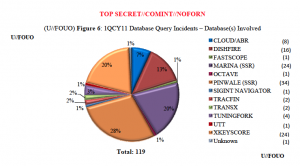Wyden/Udall: If Intelligence Community Is Dumb Rather than Malicious, Why Should We Trust Them?
Ron Wyden and Mark Udall just released a second statement on last week’s Section 215 dragnet document dump, taking the intelligence community’s excuse — that no one really knew what these programs were doing — at face value.
If the IC is dumb rather than malicious, they ask, why should we take their word on the value of the programs?
The intelligence community’s defense was that these violations were occurring because no one had a full grasp of how the bulk collection program actually worked.
If the assertion that ineptitude and not malice was the cause of these ongoing violations is taken at face value, it is perfectly reasonable for Congress and the American people to question whether a program that no one fully understood was an effective defense of American security at all. The fact that this program was allowed to operate this way raises serious concerns about the potential for blind spots in the NSA’s surveillance programs. It also supports our position that bulk collection ought to be ended.
The government’s misrepresentations inevitably led to the Foreign Intelligence Surveillance Court being consistently misinformed as it made binding rulings on the meaning of U.S. surveillance law. This underscores our concern that intelligence agencies’ assessments and descriptions about particular collection programs — even significant ones — are not always accurate. It is up to Congress, the courts and the public to ask the tough questions and require intelligence officials to back their assertions up with actual evidence. It is not enough to simply defer to these officials’ conclusions without challenging them. [my emphasis]
Though I get the feeling that Wyden and Udall aren’t buying this “dumb not malicious” line.

